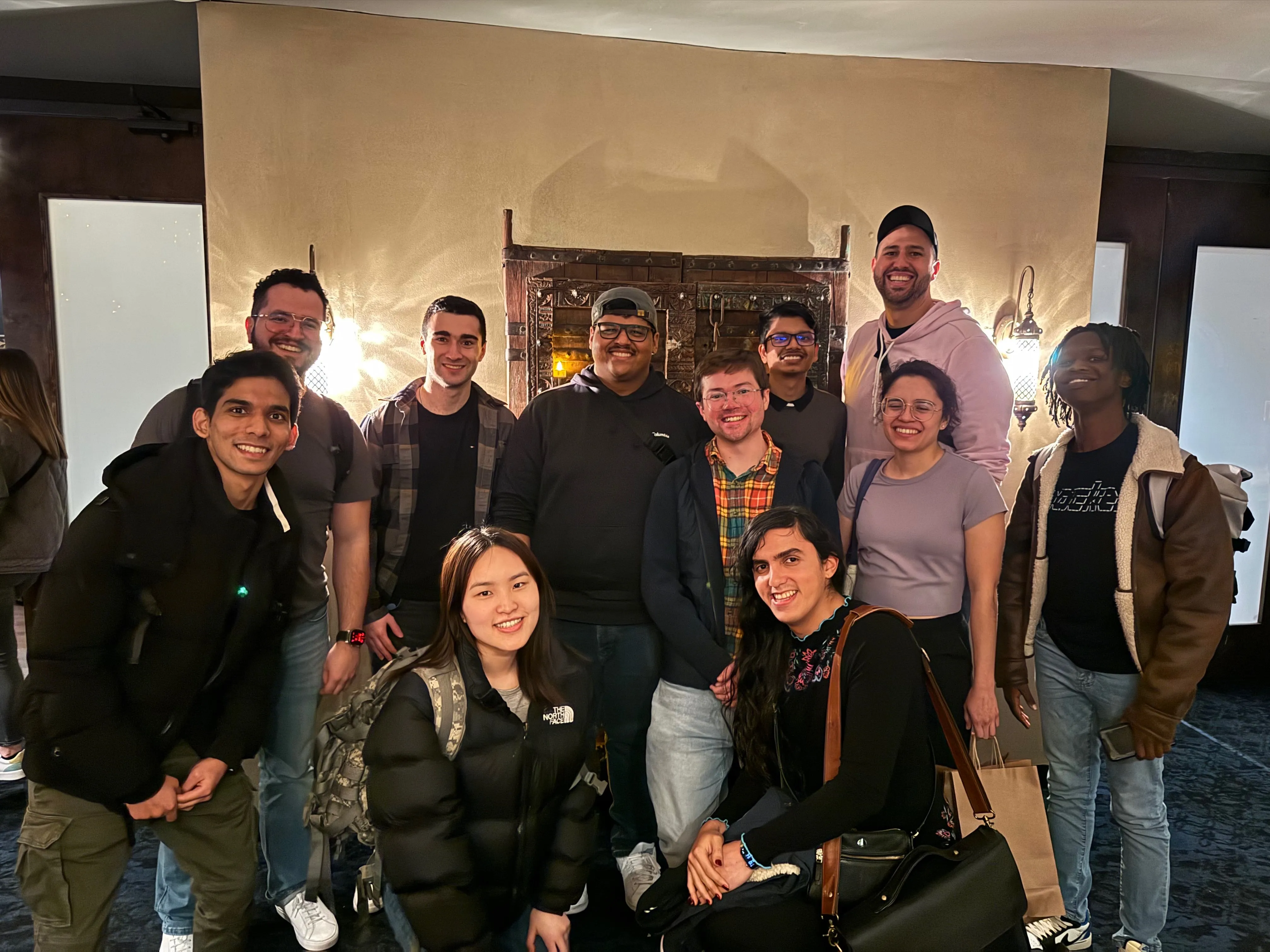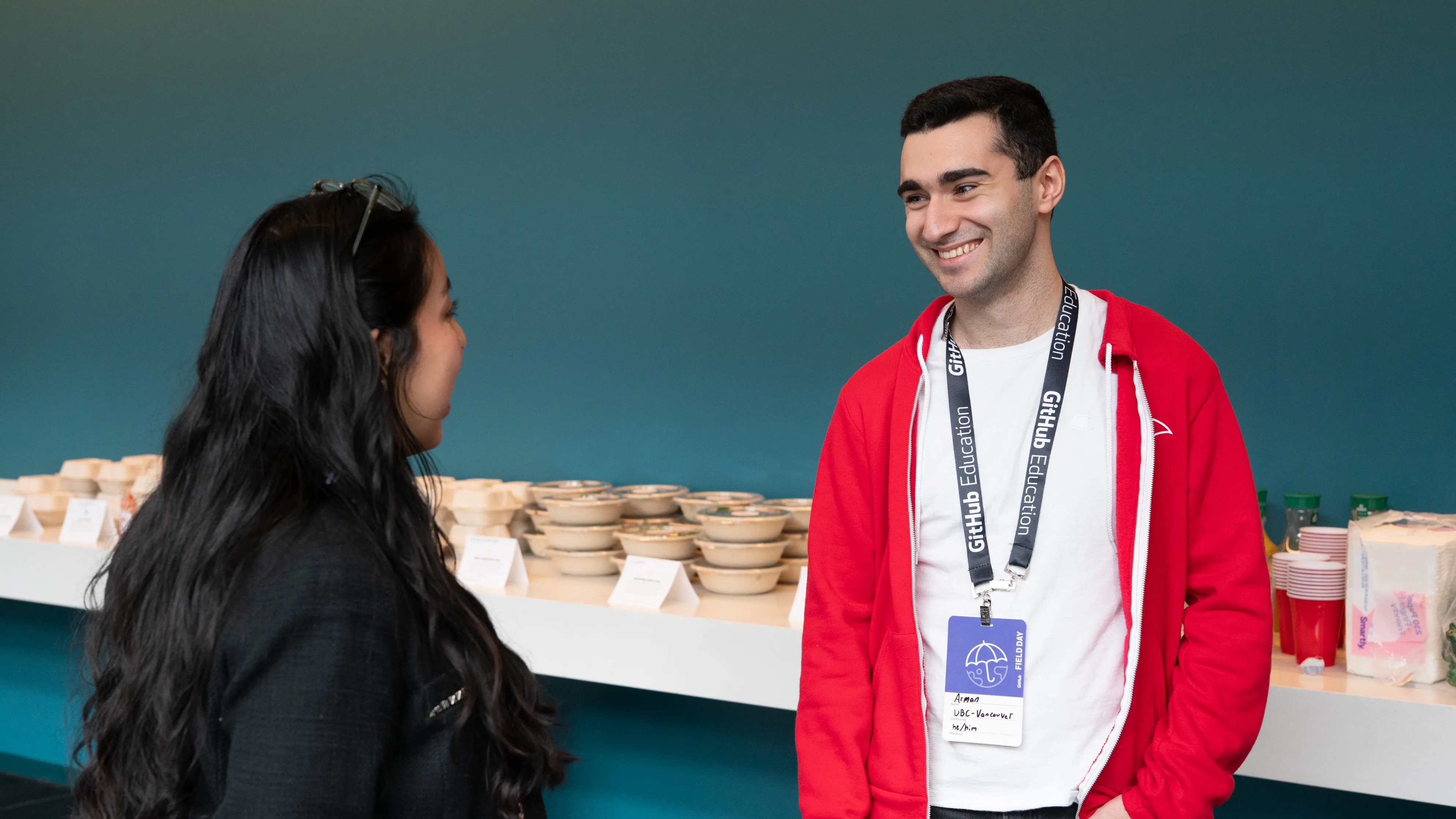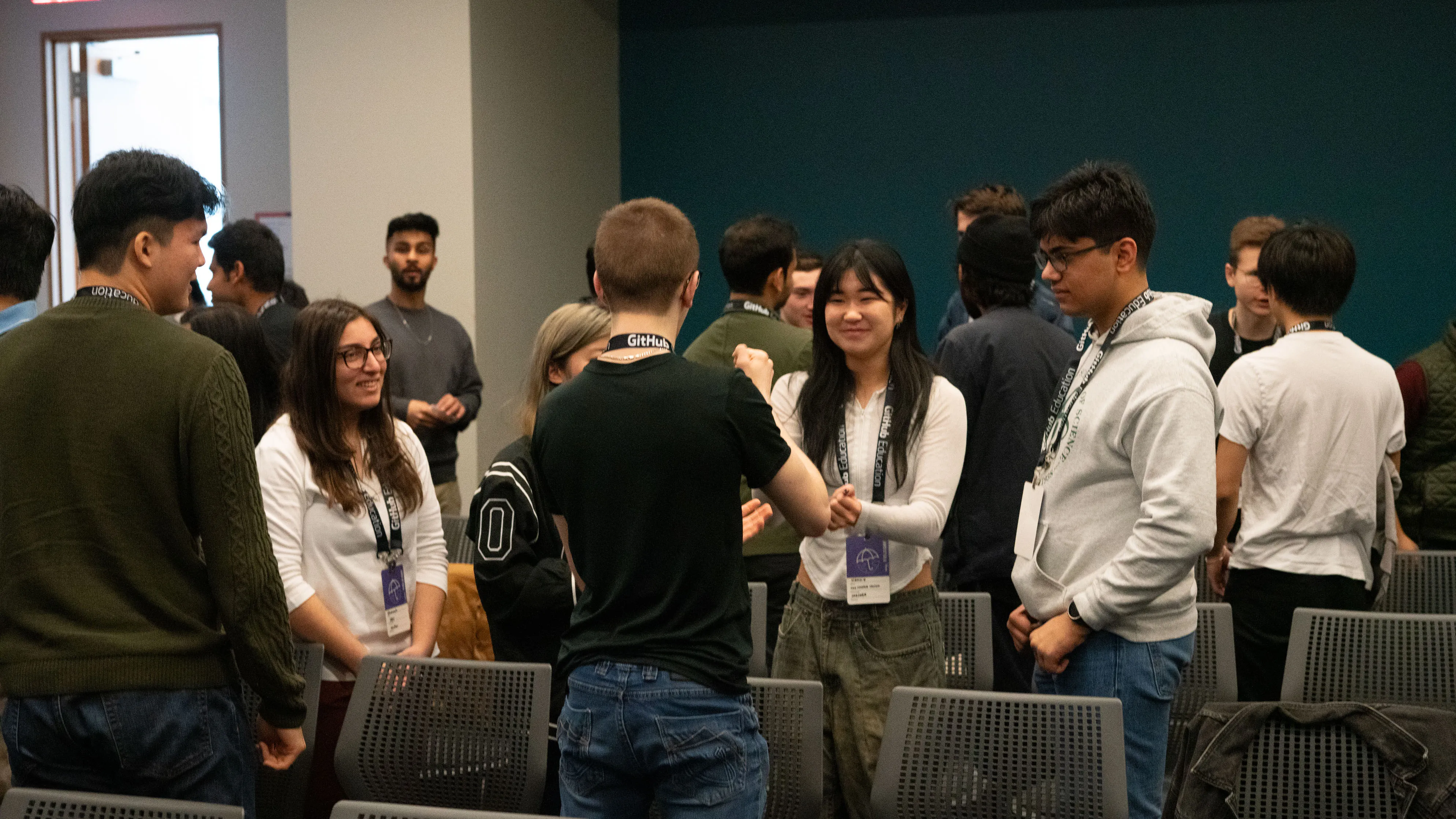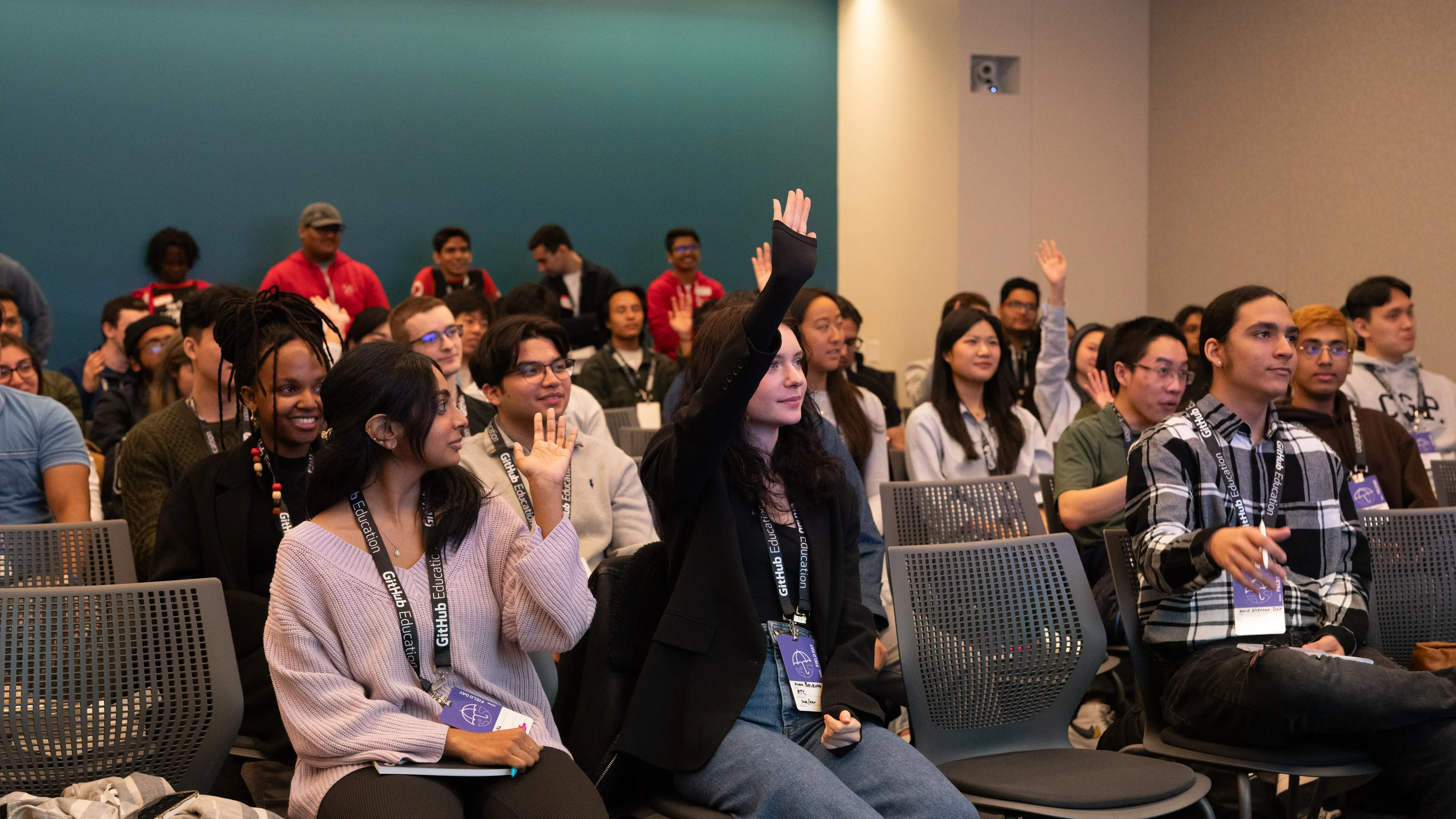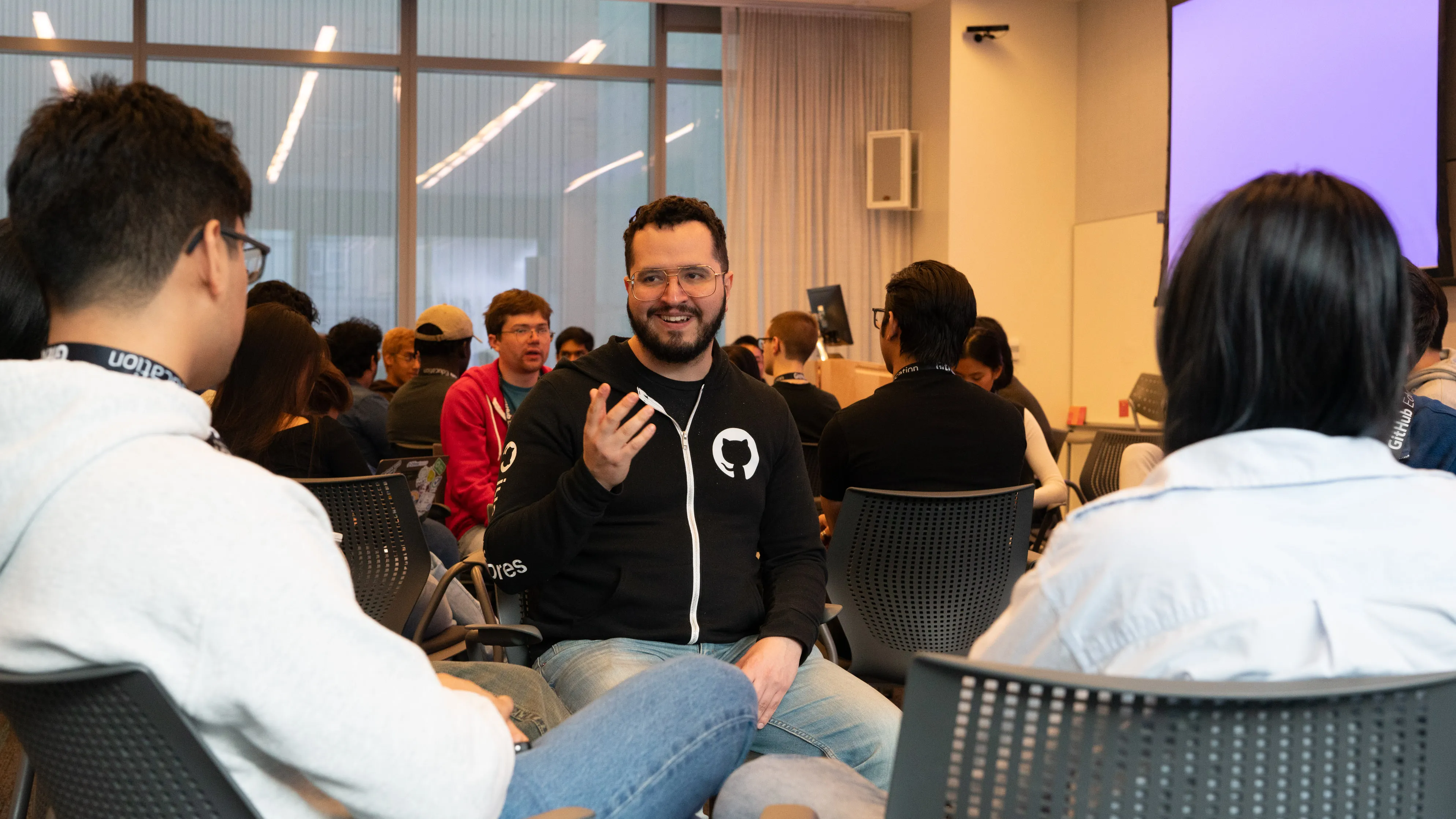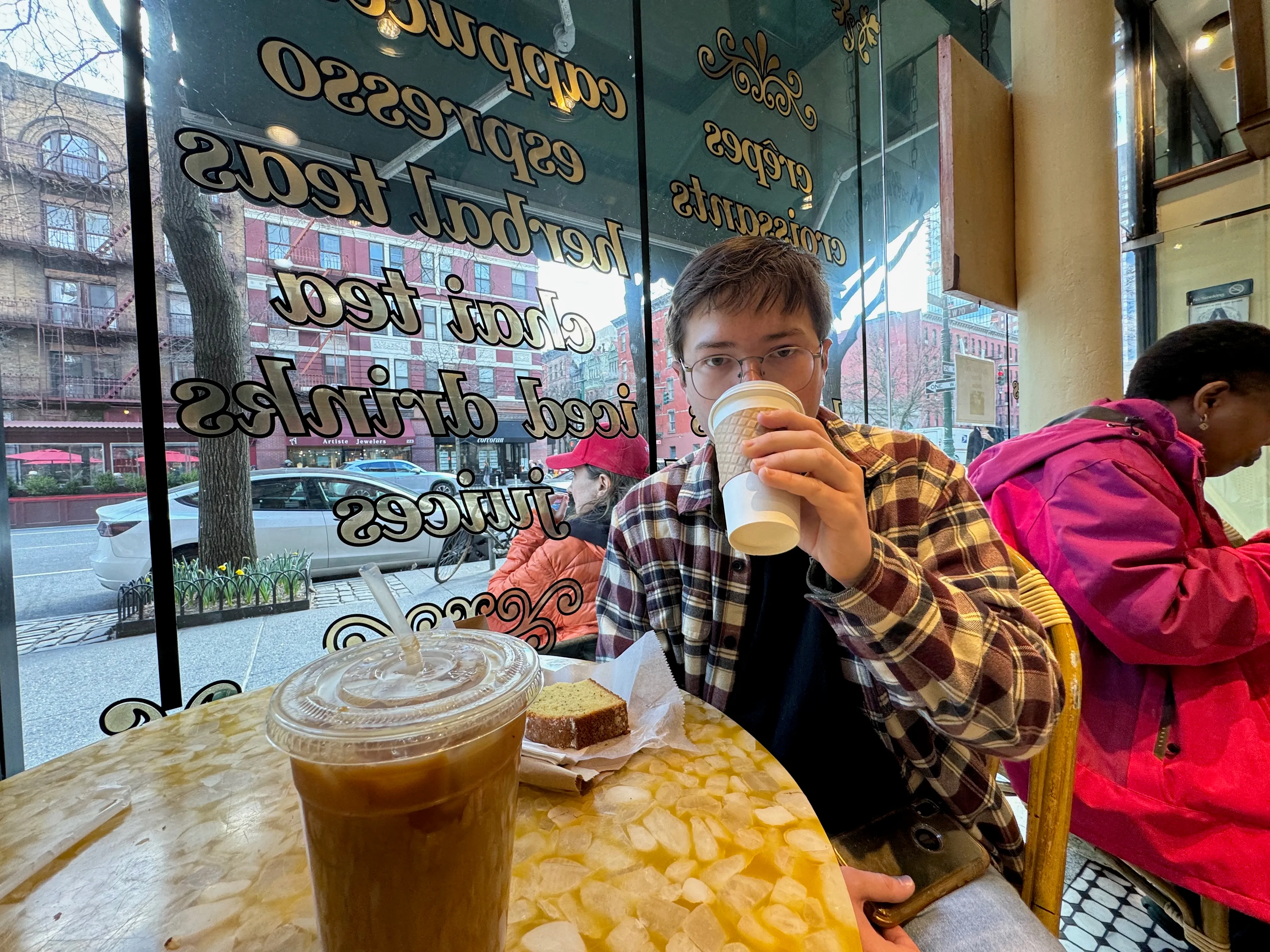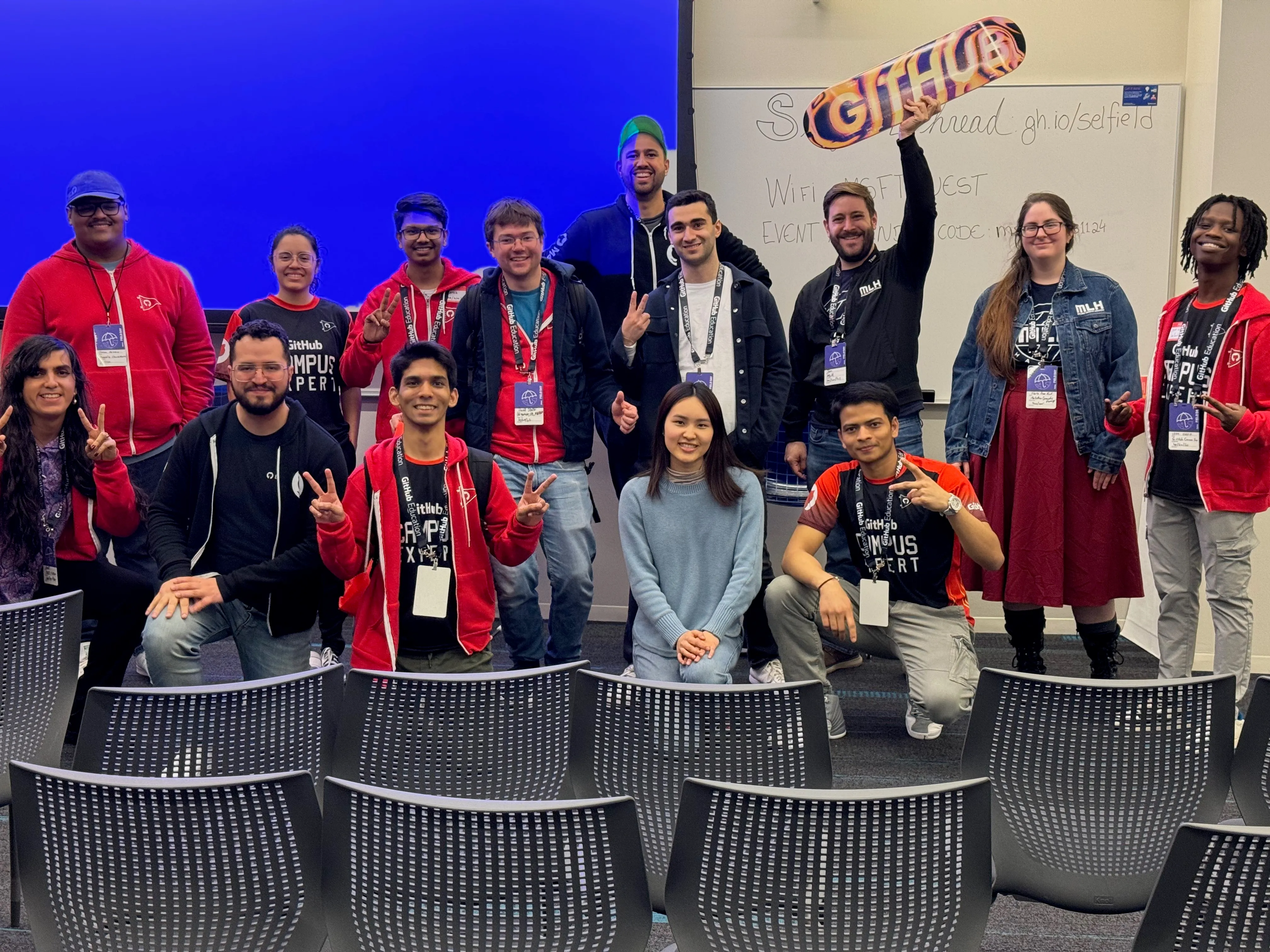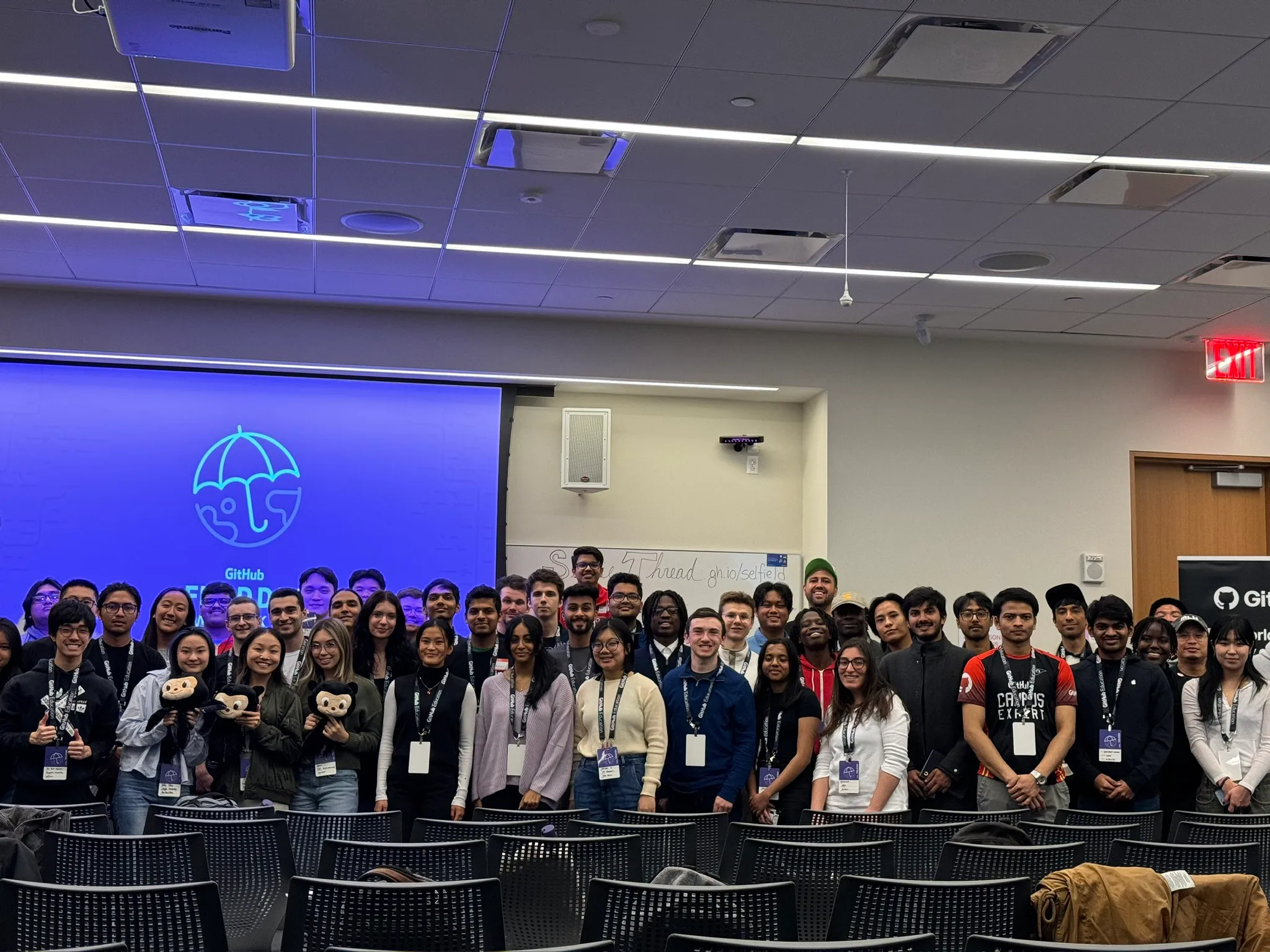
GitHub Field Day NYC 2024 Organizer
Table of Contents
I had the pleasure of helping organize GitHub Field Day NYC 2024, and it took a lot of planning and coordination to make it happen. I had a lot of fun at the event and wanted to detail some of the things that went into organizing it and some parts of the event that I found interesting.
What Is GitHub Field Day?
It was my first time attending a GitHub Field Day event and at first I was a little confused what it was all about. So I wanted to provide a little context for those who aren’t familiar with the event and hopefully it will help you decide if you want to attend one in the future.
GitHub Field Day is an unconference event that is organized by your fellow students who are a part of the GitHub Campus Experts program. An unconference is a conference without any topics set in advance and instead it is all participant-driven, meaning that the attendees decide what they want to talk about with each other. This is a great way to meet new people and learn from others from different backgrounds and experiences and get some fresh perspectives on topics that interest you.
It’s primarily an event that focuses on student community leaders and what you can learn from other student leaders to improve your own community and make it more inclusive and welcoming to all students. It’s a great way to meet other students who are passionate about technology and building communities and to learn from their experiences and share your own.
The Process
In this section I’ll cover what we had to do on the organizing team to make the event happen and some of the challenges we faced along the way.
Initial Planning
The cool thing about GitHub Field Day is that it is organized by students who are a part of the GitHub Campus Experts program, so the GitHub team gives you a lot of freedom to plan the event how you want, with some constraints of course. This is definitely a double edged sword because it means you have to do a lot of the planning and coordination yourself, but it also means you can make the event your own and do what you think is best.
We started planning the event almost a year in advance and in the summer we decided on a location and rough time frame. We decided to run the event in Fall 2023 in Seattle. One of the first things GitHub wants from the organizing team is a budget for the event and a rough idea of how many people will attend. This is also the step where you decide on a where your money will go as GitHub gives a maximum of 100 USD per attendee. We decided to spend most of the budget on both food and drinks and then travel reimbursements for attendees who needed it.
Getting A Venue
The biggest challenge we faced was finding a venue, luckily the Microsoft offices often are kind enough to let us use their space for free. This is a huge help as it can be super expensive to rent a venue for a day in any city and would have eaten up a lot of our budget.
This is the step that is the most frustrating, as it can take a long time for the GitHub team to find the correct person to talk to at Microsoft and then for them to approve the event. Unfortunately, we had to wait too long for Microsoft to approve the Seattle event and we had to delay it, but I’ll talk more about that later.
Getting Attendees
As mentioned above, we didn’t have much time to get attendees to the event, but we tried and we emailed a lot of student leaders, deans, and professors to try to get the word out around Seattle. We also posted on social media and tried to get the word out to as many people as possible. Unfortunately, we didn’t get enough applicants to run the event in Seattle, so we decided to push it back and move it to New York City to reach a larger audience.
Location Change
This is sort of the same time frame for when I started to get busy and burned out of working on the event for the last ~5 months. Then for this new location change we had to go through the same steps again, but this time we got approved by Microsoft much faster and we were able to get the event up and running in NYC.
The Event
For my first time attending a GitHub Field Day event, I really liked the unconference format of the event, as it was a great way to meet new people and learn from others. I liked that the attendees got to decide what they wanted to talk about and that it was all participant-driven. I also liked that the event was focused on student community leaders and that it was a great way to learn from others and share your own experiences.
Pre-Ceremony
Before the opening ceremony, we had a little bit of time for us to meet other attendees and for other attendees to meet each other. We had our food ready for people to eat and we had some music playing in the background to set the mood for the event.
We also ran a little fun game of rock paper scissors where it’s a contest style where if you lose you’re eliminated but the fun part is if you lose you have to cheer on the person who beat you and then you can join their team and cheer them on for the rest of the game. This was a great way to get people to meet each other and start talking to each other and it was a lot of fun.
Opening Ceremony
The opening ceremony we started off with an interesting keynote presentation by Jon Gottfried, who is a co-founder of Major League Hacking. He talked about his experiences building communities and what he has learned from them. He also talked about the importance of building inclusive communities and how you can make your community more welcoming to all students.
My favorite part of his keynote was about how he participated in this Hackbus event where attendees register to go on a bus ride to a secret location and then when they arrive at the bus they all get told where the bus is driving and they have to plan their entire trip on the bus from: hotel rooms, food, and to make it even more interesting they have to build a hackathon project on the bus in addition to planning all the rules and judging around how to judge the projects. This was a great way to get people to work together and build a community and I thought it was a great idea. It seems absurd but it also seems like a super cool experience.
After the keynote, we started doing some audience activities to get people to meet each other and start talking about what they wanted to talk about during the rest of the day. My favorite part of this was a snow-ball activity where we asked all the attendees to write down some information about themselves on a piece of paper including why they were at the event and what they wanted to gain from the event, then we threw them all around the room and we read some of them out loud as a way to get attendees to feel like everyone else is also there for similiar reasons.
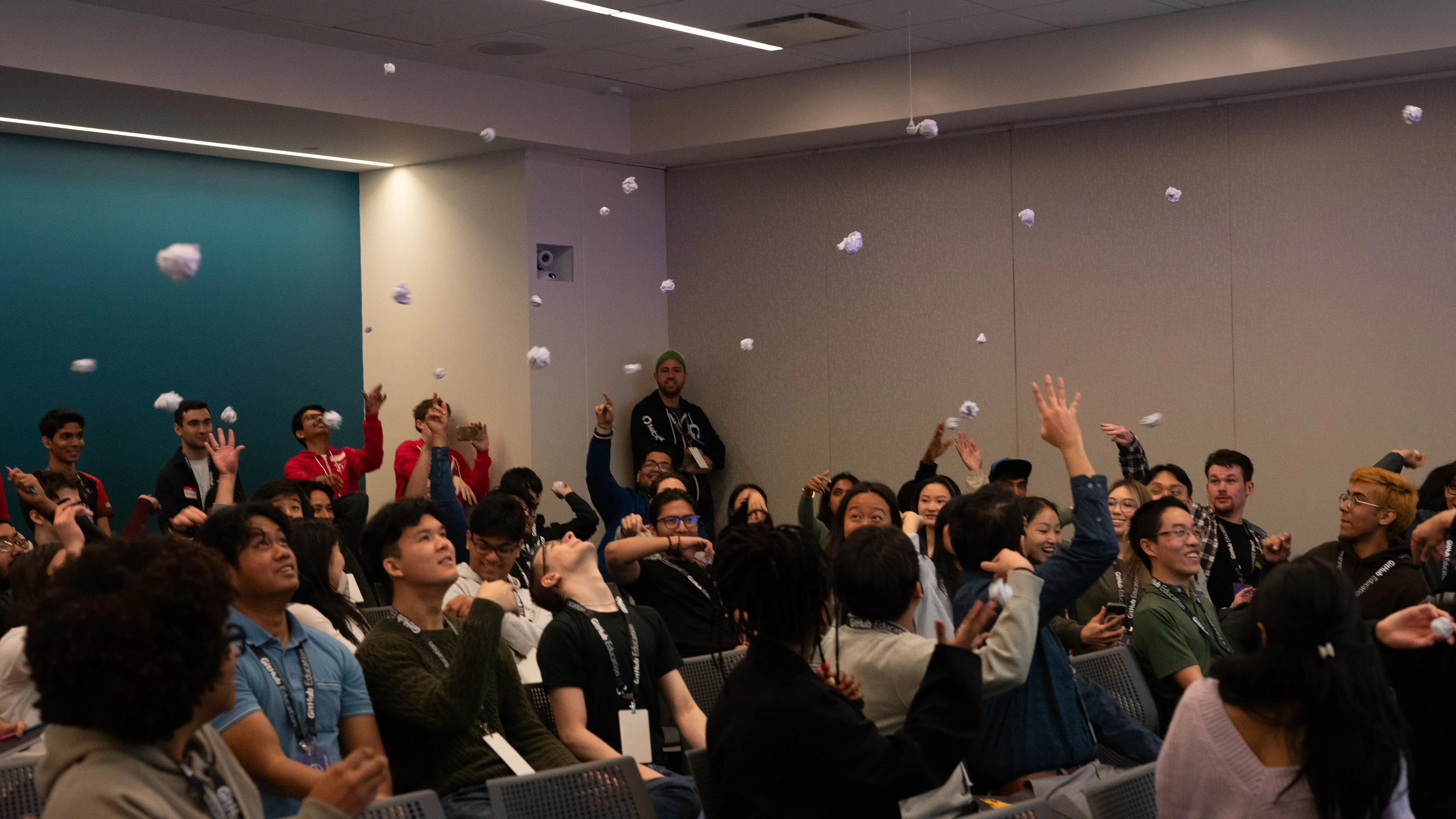
We then had all the attendees pick one thing that they’re interested in talking about and write it on a sticky note which we put on the wall then we started grouping like topics together and developed what our different sessions would be about for the rest of the day based on the sticky notes.
Some Topics
Some of the topics that I remember that got covered during the event session were:
- Hackathons 101 & 201
- How to plan your first event
- How to get sponsors for your event
- How to get internships
- How to make your community more inclusive
- Miscellaneous topics like: robotics, open source projects, etc.
- And many more that I’m forgetting
Some Interesting Conversations
One of my most interesting conversations in my opinion was about how to make a community around developing open source projects. I’ll just list some interesting ideas that were brought up during the conversation:
- A mini-hackathon, where the day before everyone submits ideas for projects that can are finishable in a few hours and the organizing team filters down the list to what’s feasible and then attendees in groups of 2-4 people can pick a project to work on and then present it at the end of the day.
- The idea is that each team will also have a mentor who can help them with their project and gives them guidance on how to finish the project and good coding practices.
- This can also be modified to where everyone works on the same feature or project but everyone has different implementations and then at the end of the day everyone can see how different people solved the same problem.
- Open Source Shared Project, this is one type of event that I’m really interested in hosting. The idea is that you have a shared project that everyone can work on and contribute to, and during these events you get small groups of people together to work on a specific feature or bug fix and then at the end of the day you have a lot of people who have contributed to the project and can see the progress that has been made in a short amount of time.
- Ideally for this one to you’d have a handful of people who know the project well and can help guide the new contributors on their team and help them get started with figuring out how to contribute to the project, since it’s hard to start contributing to a larger project or codebase that you’re not familiar with is also not a skill that is taught in school.
- I think this is a great way to get people to start contributing to open source projects and to get them to see how they can make a difference in a project that they care about.
- If I decide to run this type of event, I think I might try it for ApplicantAtlas but this could be easily modified to work with any open source project that the attendees are interested in contributing to.
Conclusion
Overall, I had a great time at GitHub Field Day NYC 2024 and I learned a lot from the other attendees and the sessions that I attended. I think it’s a great event for student community leaders to learn from others and share their own experiences and I would definitely recommend it to others who are interested in building communities and making them more inclusive and welcoming to all students.
It’s also super refreshing and inspiring to meet new people that are just as passionate about technology and building communities as you are and to learn from their experiences and share your own. I think it’s a great way to get new ideas and perspectives on how to improve your own community and make it more welcoming to all students.
Photo Gallery
